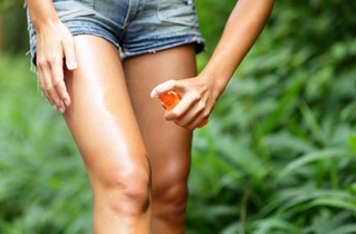
As you know, receiving a new transplant means you are at extra risk of infection. The anti-rejection drugs you are taking may help your body accept the new organ, but they also make your immune system weaker.
Mosquitoes carry many germs, especially West Nile Virus and malaria. Although not found in Ontario, malaria has recently been found in many areas that were previously malaria-free. West Nile Virus has been found in Ontario for a number of years, so you need to take care even if you are not travelling far!
How to cut your chances of being bitten
- Avoid being outdoors at dawn or dusk, when mosquitoes are especially active.
- Wear light-coloured clothing with long sleeves and cuffs and long pant legs tucked into socks.
- Remove standing water (where mosquitoes breed) around your home and change the water in bird baths and kiddie pools or bath toys every day.
- Cover rain barrels with screens.
- Make sure screens on windows and doors are not ripped or torn.
- Use bed nets when travelling to mosquito-ridden areas.
Mosquito repellents
The most effective insect repellents contain an active ingredient called DEET. Levels of DEET and length of protection against bites differ from one product to another. Remember that protection times may be shorter if you are sweating or getting wet.
- Use a product with up to 30% DEET. One application will protect you for up to six hours if you are not sweating or getting wet.
- Don’t use insect repellents such as citronella or lavender, as they do not offer as much protection.
How to apply mosquito repellent
- Spray it on your hands and then apply it to skin that will be exposed (not covered by clothing). Do not apply it to irritated or sunburned skin.
- Spray it in a well-ventilated area with no open food nearby.
- Spray it onto your clothes, but do not waste it by spraying it under clothing.
- Wash your hands right after applying it so that it won’t get into your mouth or eyes.
- If you need to wear repellent and sunscreen, apply the sunscreen first and wait 20 minutes before you apply the repellent.
- Wash your skin with soap and water when you no longer need the repellent (for example when you go indoors for the night).
- If possible, wash your treated clothing before you wear them again.






